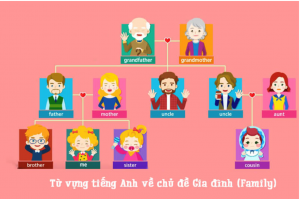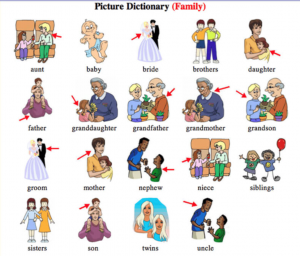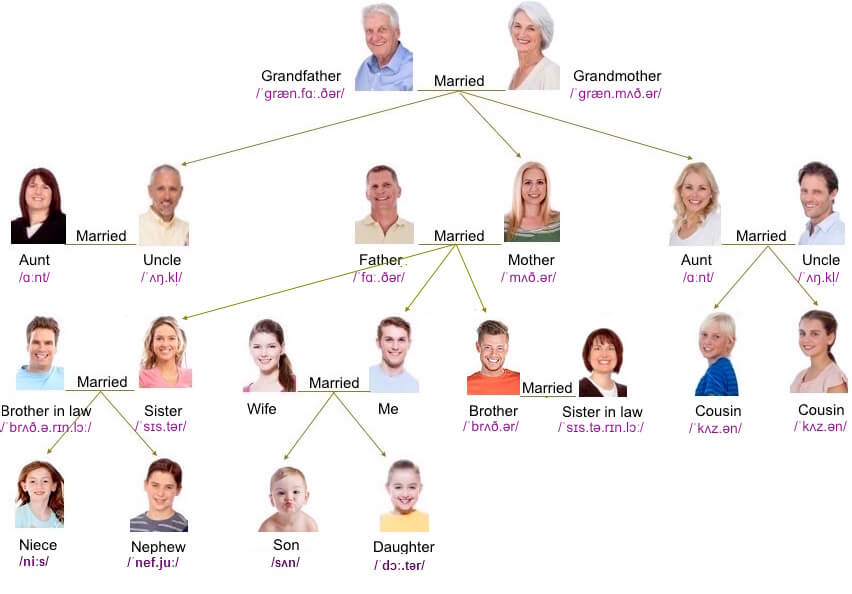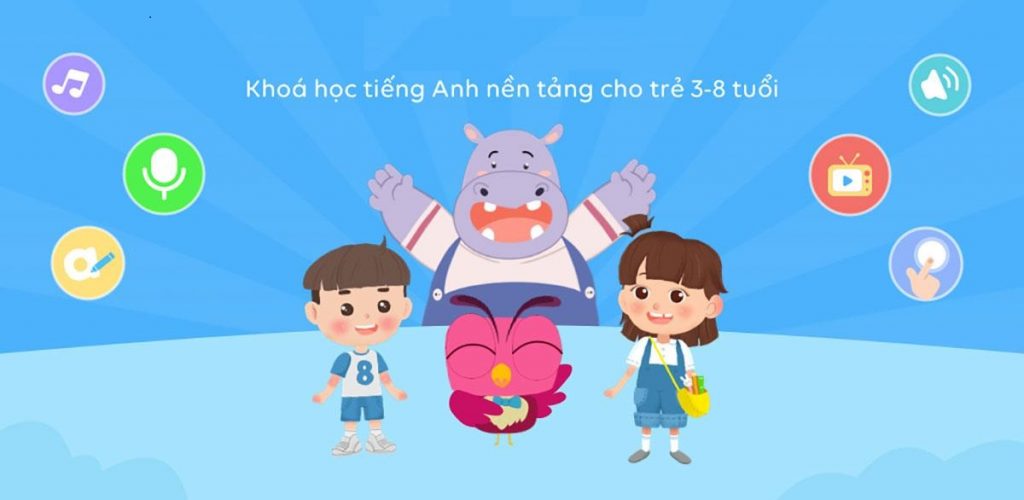For the topic of family, there are many different types of families, and each family has multiple members with unique relationships. Therefore, English vocabulary about family for children is incredibly diverse and can be described from various perspectives as follows.
Below are the ways to refer to family members.
- Mother:
- Father:
- Husband:
- Wife:
- Daughter
- Son
- Parent
- Child
- Sibling
- Brother
- Sister
- Uncle
- Aunt
- Nephew
- Niece
- Grandparent
- Grandmother
- Grandfather
- Grandson
- Granddaughter
- Grandchild
- Cousin
- Relative

English Vocabulary About Family Types
A collection of English vocabulary about family types for children includes:
- Nuclear family: A small family unit.
- Extended family: A big family with many members.
- Single parent: A family with only one parent.
- Only child: A family with just one child.
Vocabulary About Family Relationships in English
English vocabulary for children can also describe emotions and relationships in the family, such as:
- Get along with: To have a good relationship with someone.
- Close to: To have a strong bond with someone.
- Rely on: To depend on and trust someone.
- Look after: To take care of someone.
- Admire: To look up to someone.
- Bring up: To raise a child.
- Generation gap: The difference between generations.

Additional Vocabulary About Family in English
To ensure a rich vocabulary for mastering English, children should also learn the following family-related terms:
- Immediate family: Family members in the closest circle.
- Nuclear family: A small family unit (consisting of parents and children).
- Extended family: A large family (including grandparents, aunts, uncles, etc.).
- Family tree: A diagram showing family members and their relationships.
- Distant relative: Relatives who are not closely connected but still part of the family.
- Loving family/Close-knit family: A family with strong emotional bonds and care for each other.
- Dysfunctional family: A family with conflicts and lack of harmony among members.
- Carefree childhood: A childhood free from worries or concerns.
- Troubled childhood: A difficult or challenging childhood.
- Divorce: The legal separation of a married couple.
- Bitter divorce: A divorce filled with conflicts and disputes.
- Messy divorce: A divorce involving complications like asset disputes.
- Broken home: A family that has been disrupted or separated.
- Custody of the children: The right to care for children after a divorce.
- Grant joint custody: Both parents share the custody of the children.
- Sole custody: Only one parent has custody of the children.
- Pay child support: Paying financial support for raising children.
- Single mother: A mother raising children alone.
- Give the baby up for adoption: Allowing a child to be adopted by others.
- Adoptive parents: Parents who adopt a child (not biological parents).
- Blue blood: Royal lineage, noble heritage.
- A/the blue-eyed boy: A beloved or cherished child in the family.
Common English Phrases About Family
Words are like bricks that build the structure of a house, and phrases are the mortar that connects these bricks tightly. Similarly, English phrases help children convey ideas effectively and make communication more beautiful and meaningful.
- Take care of = Look after: To care for someone.
- Take after: To resemble someone.
- Give birth to: To have a baby.
- Get married to sb: To become someone's spouse.
- Propose to sb: To ask someone to get married.
- Run in the family: A shared trait or characteristic in the family.
- Get along with somebody: To have a harmonious relationship with someone.
















